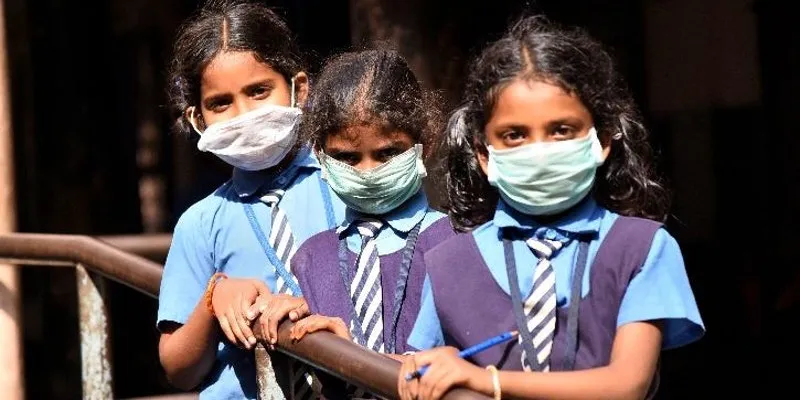What guidelines are your children’s schools following as they reopen after lockdown?
As schools and colleges across the country reopen in a staggered manner, here is a brief overview of the guidelines they should be following.
It’s been nearly a year since the school bell announced the beginning of lessons for millions of students across the country. As several states have announced that academic institutions will be opening in a phased manner, there will be one crucial addition to the uniform – the now ubiquitous face mask.
While schools in Bihar, Puducherry, and parts of Maharashtra reopened earlier this week joining Uttar Pradesh, Karnataka, and Madhya Pradesh, others including Delhi have been reluctant to reopen till vaccines are available for students.

Wearing masks and a total ban on sharing school supplies and lunch will be among the rules as schools across the country open in a staggered manner
While the Education and Home Ministries have said that parents can choose whether to send their children to school or not, they have issued strict guidelines for schools to follow when admitting students on campus. Here is a brief overview:
- Follow flexible, staggered, and reduced timings planned for different classes in such a way that physical/social distancing is maintained along with other guidelines.
- Only a certain percentage of the students to attend the school depending on the enrolment, rotationally on alternate days or every two days in a week.
- Run schools in two shifts. In the case of high enrolment, schools can also be considered by reducing the duration of school hours per shift, such that the school is able to manage with the same set of teachers in the overall school hours.
- Database of teachers belonging to different zones may be prepared by the State Department with the information of every teacher residing in containment zones particularly.
- Children of migrant labourers to be given automatic admission to all government and government-aided schools.
- All assemblies, sports, functions, field trips, to be suspended indefinitely.
- Compulsory gatherings like mid-day meals to continue.
- School Academic Calendar needs to be overhauled, making syllabus learning outcome-based rather than theme-based
- Wherever possible, safe transport facilities may also be made available for teachers and students, in case students and teachers are coming from far off places to school.
You can read the complete guidelines issued by the Ministries here.
Several private schools have also added safety measures such as:
- Compulsory thermal checking
- Signage reminding students to observe all safety measures
- Quarantine rooms for those showing even mild symptoms.
- Only one student to occupy a two-seater desk
- No sharing of stationary or lunch
These guidelines have particular significance as several students and teachers across the country have tested positive for the coronavirus after rapid antigen tests were conducted.
Edited by Megha Reddy







